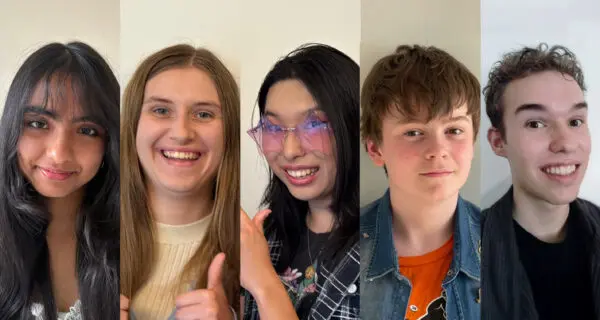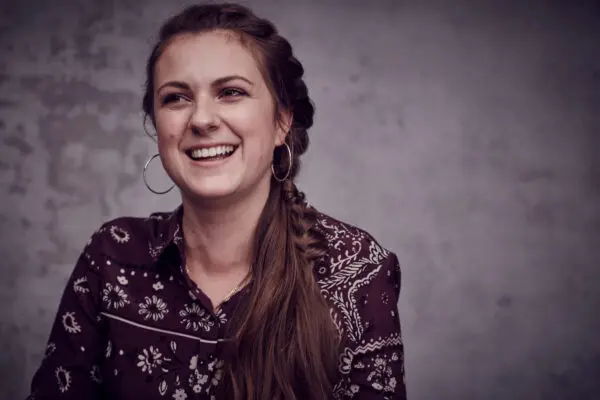Actually, it started with a 13inch black and white television that I bought at a car-boot sale in Redruth for a fiver back in 1996. Mum finally caved into my whingey pleas and let me have a TV in my bedroom, but on one condition; no TV after bedtime. “Sure”, I promised, avoiding all eye contact. Back then, I was a shy, sulky, hormonal teenager with an unwanted moustache that would give Tom Selleck a run for his money. The new girl at school, I was desperate to fit in but to add to my list of growing pains I had a major crush on Julia Roberts. While girls in my class squealed over posters of West Life and Take That, I was lusting over women and deeply confused about my sexuality because it was a kind of relationship I’d not yet seen. So I pretended to be in love with Stephen Gately instead. Oh, the irony.
One evening, after painstakingly contorting the wire coat hanger ariel that was jammed into that back of my crap television with a piece of blu-tack, I stumbled across Amy Jenkins’ This Life. A brilliant series, Daniela Nardini’s screwed up character makes Fleabag look like a saint, but it was Ramon Tikeram’s character Ferdy who had me hooked. Actually, it was one particular moment that drew me in and has stayed with me to this day, of Ferdy, a character who was fighting the fact he was gay, sharing a passionate kiss with a long-haired biker guy. Two men kissing. A tender, hot, beautiful moment. Shock. Gulp. I couldn’t believe my eyes. It was the first moment that somehow validated my own aching desire to kiss a woman.
I clung onto every scrap of lesbian representation I could find, no matter how distant from my world, to create a picture of the life I longed to live.
Wrestling with my sexuality
I was hungry to find other examples I could identify with. It was not until a few years later, when we got dial-up internet, that I began scrolling the depths of the internet for women loving women. Slim pickings, I replayed the infamous Brookside lesbian kiss over-and-over. I stalked Ellen Degeneres who seemed like the only gay woman on the planet at that time. I watched Friends, willing Ross’s lesbian ex-wife to re-appear. I replayed the scene in The Hours when Meryl Streep’s character kisses her wife. I clung onto every scrap of lesbian representation I could find, no matter how distant from my world (The L Word), to create a picture of the life I longed to live. Although few and far between, these glimpses of my reality had a huge impact on me and gave me the confidence to share my experience.
Television should strive to embed all types of relationships on screen, for every person to be able to relate. Let us get married. Let us have kids. Let our relationships survive.
Where are the representations of positive gay relationships?
Today, I’ve seen an increase of LGBTQ character’s on our screens, queer is quite the trend. But a majority of gay storylines seem to be about coming out, disastrous relationships or overt promiscuity. Where are the representations of positive gay relationships? Why does being queer always end in tears? As my wife and I plan to start our own family, we are searching for representations of us. We want to identify, and we want our children to feel like having two mums is ‘normal’, but so far, we’ve only recently come across a Vauxhall car advert of a woman driving her pregnant wife to the hospital while in labour. If it was television, I’m sure they’d have crashed and died en route.
I didn’t get to watch the rest of This Life because Mum eventually ambushed me and confiscated my television. But I clung onto that moment of two men kissing because it gave me a sense of relief, that I wasn’t alone. I wonder if, one day, our child might take comfort identifying with a child who has two mums on screen. Television should strive to embed all types of relationships on screen, for every person to be able to relate. Let us get married. Let us have kids. Let our relationships survive.










